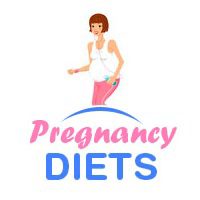You’re pregnant! You are thrilled, glowing, excited, nauseous, all of the above. Most importantly, you are bound and determined to make sure that every single thing that you put into your mouth over the next nine months provides the best possible nutrition for your baby.
While you’re educating yourself about different foods and their benefits, make sure that you also know what to stay away from; a lot of the foods you may love when you’re eating for yourself can be harmful for your developing child.
Mayo Clinic
The first trimester of pregnancy is when the risk of miscarriage is highest, and drinking too much caffeine during pregnancy has been linked to miscarriage, premature labor, and low birth weight. There’s even some evidence of caffeine withdrawal in newborns whose mothers were heavy caffeine users. Though moderate amounts of caffeine (under 200 mg per day, or a 12-
List
The list of foods to avoid during pregnancy can seem overwhelming, but careful study reveals that there are simple guidelines to follow. The most basic thing to remember is that foods should be free of contaminants, and food should be safely prepared.
Fish and shellfish are high on the list of foods to avoid because of the risk of both mercury and pollutants like PCB’s. A good rule of thumb when considering eating different fish is that the bigger the fish, the older it is, and therefore the more likely it is that it was exposed to mercury. Mercury exposure can cause brain damage and developmental delays.
Swordfish, shark, tile-
It is equally important to note that fish is an excellent source of protein, iron and Omega-
The other category of foods to avoid during pregnancy are those whose preparation, while safe for the general public, become dangerous for developing babies.
Bacteria and viruses thrive in anything that is raw or undercooked such as sushi, oysters, and clams.
Many smoked items, such as deli meat and lox, risk exposure to listeriosis, a form of food poisoning.
Preparation of stuffed raw items, such as chicken or flounder prefilled with stuffing or crab meat, have a high risk of bacterial contamination during their preparation, particularly salmonella.
Eggs should only be eaten if fully cooked, and you should avoid any item that is made with raw eggs including cookie dough or batter, caesar salad dressing, hollandaise sauce, and eggnog.
Other foods that are at high risk of contamination and bacteria are unpasteurized cheeses; these include soft Mexican cheeses, brie, camembert and blue cheese.
It is important that you eat a lot of fresh produce, but make sure that it is carefully washed, as unclean fruits and vegetables are often exposed to coliform bacteria.
Finally, in a class by itself, pregnant women should avoid eating liver; though it is generally thought of as a healthy, high-
Honey
Where the foods cited above have clear-
Artificial sweeteners such as saccharine and aspartame have not been proven to cause harm during pregnancy, but it is generally acknowledged that honey is the safest and healthiest sweetener to use when you’re expecting.
Herbal teas are not known to cause any specific problems, but it may be best to keep your use to a minimum, as they have been known to have different medicinal effects that may not be healthy for a developing fetus.
Heartburn
Finally, though it’s not dangerous, heartburn is a common and uncomfortable side effect of pregnancy. The foods to avoid during pregnancy in order to minimize the effects of heartburn include chocolate, mustard and vinegar, tomato and citrus fruits and their juices, and anything that is high in fat and spices. Remember to drink lots of water, and if you are uncomfortable after eating, consider cutting the size of your meals.
